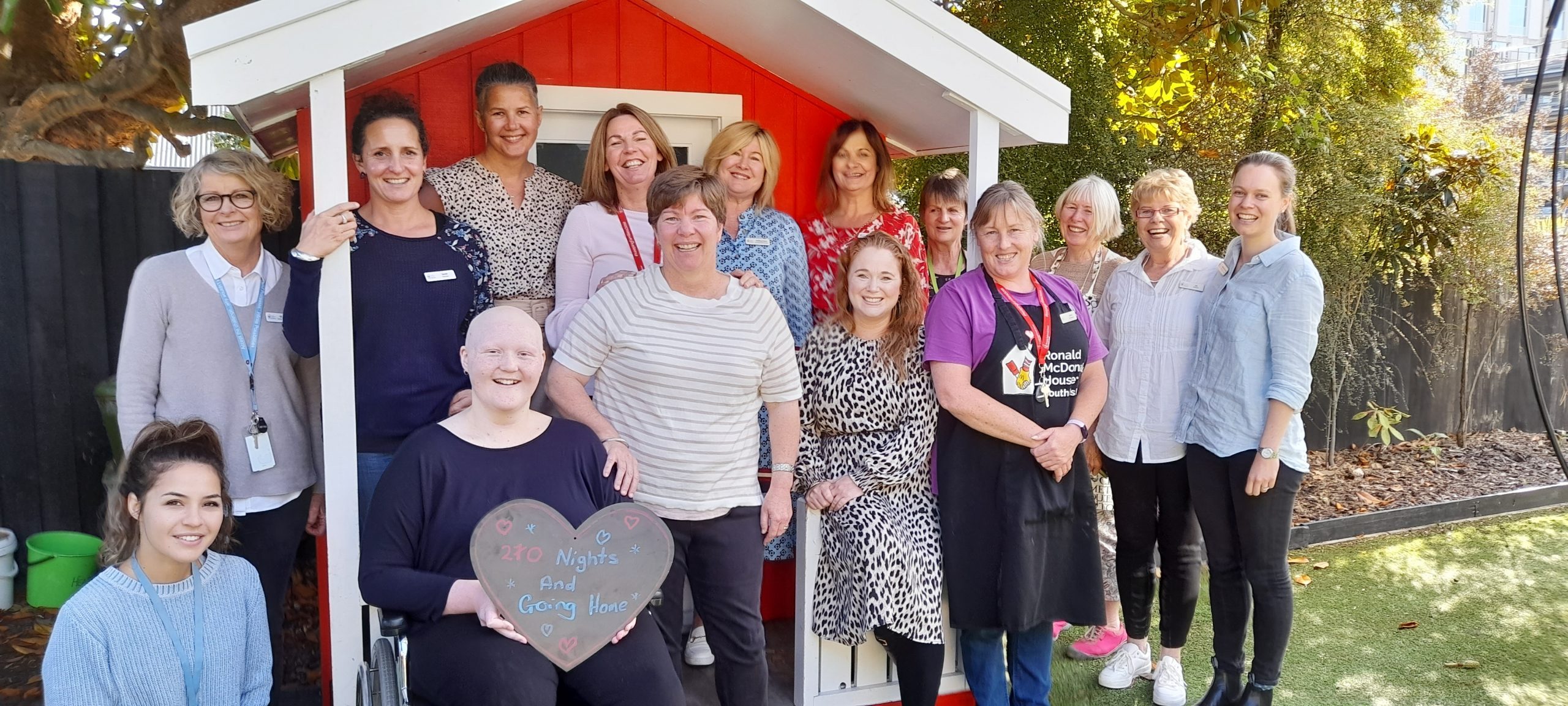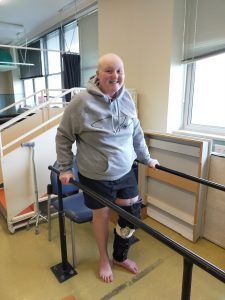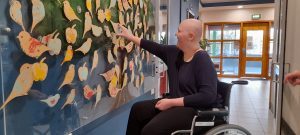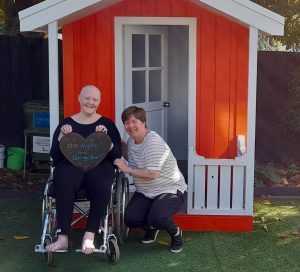An Invaluable Gift

The gate opens and Michelle Osgood and daughter Zoe drive out of Christchurch’s Ronald McDonald House for what should be the last time.
As they turn onto the road, they see a crowd forming a guard of honour along the entrance to the House, waving and cheering them away.
It’s the Ronald McDonald House team, the people who a year ago were unknown to them, but now, after 270 nights, they are family.
“We felt like we were moving home, not going home,” Michelle says. “Ronald McDonald House has been our home away from home.”
 It was July 15, 2020 when Michelle, husband Phill, son Lucas, and 14-year-old Zoe of Blenheim arrived at the House in a bit of a daze, having been told two days earlier that Zoe had osteosarcoma - a type of bone cancer in her knee. The diagnosis was a surprise to say the least.
It was July 15, 2020 when Michelle, husband Phill, son Lucas, and 14-year-old Zoe of Blenheim arrived at the House in a bit of a daze, having been told two days earlier that Zoe had osteosarcoma - a type of bone cancer in her knee. The diagnosis was a surprise to say the least.
In March, Zoe had complained of leg pain, but it had seemed minor at the time.
“Like many mums, I told her to put a bag of peas on it and it would come right,” Michelle said.
Unfortunately, the pain continued to get worse. The doctor thought Zoe had injured her knee cap and prescribed physio. But after two and a half months of treatment, and no improvement, they ordered an MRI to see what was happening below the surface.
“We had the MRI on the Friday, and on the Monday the GP called us in urgently. I honestly thought she was going to tell us Zoe needed knee surgery, but instead she told us Zoe had cancer, that it was bone cancer, a 2cm tumor on her thigh bone and that we would be going to Christchurch for treatment.
“In that moment I instantly thought they had made a mistake, because there was no way a leg that needed a bag of peas, needed chemotherapy. I was absolutely in denial.”
By the time they walked through the doors of the Child Haematology and Oncology Centre (CHOC) two days later, Michelle and Zoe still had no idea where they would be staying for the nine to twelve months treatment was expected to take.
“It was there we got told we would be staying at Ronald McDonald House, and I remember thinking ‘that’s where really sick kids go, maybe she really is sick’ but it still hadn’t really dawned on me.”

As the weeks and months rolled by, Zoe went through chemotherapy, surgery to remove the tumour, and several knee replacements.
When Christmas rolled around, Michelle’s parents came to stay at the House while Michelle and her husband stayed with Zoe at the hospital so they could welcome Christmas Day in as a family. “In the morning, my parents came out of their room to come to the hospital and outside the door was a big sack of presents - not just for us, but for them as well. They brought them over to the hospital and we were able to open them all up together. We were then allowed out of hospital for the day, so we went back to the Ronald McDonald House - that was our home, so that’s where we went and had Christmas dinner. It was amazing.”
While the facilities at Ronald McDonald House gave Michelle and Zoe a place to rest comfortably in between treatments, it was the people who made the House feel like a home.
“What is understated when you hear about Ronald McDonald House is the amount of love and support everybody there gives you, no matter what their job is,” Michelle said. “The people who work there are just a special breed. The volunteers in particular, it’s not a job for them, they could volunteer anywhere but they choose here.

“They all knew who we were, that we’d done a stint in hospital, when we were going back, how things were going. Not once, did we ever feel like we were in the way.”
Michelle’s mother also stayed at the House for four months as her support person. During the second Level 2 lockdown, she wasn’t allowed to visit the hospital where Zoe and Michelle were staying. The CHOC Family Room volunteers became the go-between between us, letting us know how she was going at the House and vice versa.”
The generosity of everyone who contributes to the House with their time, money, or goods, was humbling, Michelle said. “You have made a real difference to families’ lives. “When I think about what it would have cost us to rent a place or stay in a hotel for as long as we needed, plus food on top of that, it doesn’t bear thinking about. The funding you get from the DHB wouldn’t cover all of that. We couldn’t afford to do that.
“When we left, I wanted to give something back to the House, but I couldn’t put a value on it. What they’ve given us is invaluable, we’ll never be able to repay what they’ve done.”
